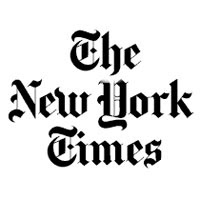
By Nick Cumming-Brucenov
■ Geneva — China faced robust questioning from United Nations human rights experts on Tuesday as it sought to defend its record on torture and to make the case that it had achieved important progress promoting human rights and with government based on the rule of law.
The unusual grilling of senior Chinese officials came as its ambassador to the United Nations in Geneva, Wu Hailong, presented a report to the Committee Against Torture that was China’s first appearance before the panel since 2008.
“China has made further progress in its legal development and human rights protection,” Mr. Wu told the members of the panel in a 20-minute opening statement. “A lot of new achievements have also been registered in our work against torture. China has an unswerving position on and commitment to countering torture.”
But the United Nations experts challenged Mr. Wu about the Chinese government’s deepening clampdown this year on human rights lawyers, as well as the prolonged detention of dissidents and activists and what rights advocates describe as the common practice of torture by the police and Communist Party anticorruption investigators.
The experts asked questions about the independence of the judiciary, prisoner access to lawyers, the length of pretrial detention, the forced repatriation of North Koreans and about psychiatric treatment and shock therapy practiced on gay people. Panel members commented repeatedly on the lack of detail in China’s replies to their requests for information.
Starting in July, the Chinese police began detaining hundreds of lawyers and their associates in a crackdown that focused on a law firm in Beijing, which the authorities said had recruited protesters and used rabble-rousing tactics to intimidate judges. Amnesty International estimated in early September that 245 people had been detained; most were released, but 30 remained in custody or were missing. Other organizations give higher estimates of the numbers detained.
Among recent cases attracting public attention was the treatment of Gao Zhisheng, a prominent rights lawyer who was released from prison in August last year but remains in secretive confinement.
Mr. Gao told a reporter for The Associated Press earlier this year that while in prison, he was brutalized with an electric baton and held in solitary confinement for three years. When someone pushed the baton onto his face, Mr. Gao said, he screamed “almost like a dog howling when its tail is forcibly stepped on by its master.”
Among the positive developments cited by Mr. Wu in his address to the panel were the abolition of re-education through labor in December 2013 and a reduction in the number of offenses punishable by the death penalty.
Amendments to the criminal procedure law have strengthened the exclusion of “illegally obtained evidence,” including evidence extracted by torture, he said. In 2014, he said, the authorities decided not to approve the arrests of 406 people and not to prosecute 106 others because the evidence against them had been obtained illegally.
But the committee cited a Human Rights Watch analysis of 432 verdicts since the start of 2014 in court cases where suspects said they were tortured. Only 23 resulted in evidence’s being thrown out of court and none resulted in the prisoner’s acquittal, the panel noted. What measures were taken against those who extracted the confession? the panel asked.
Mr. Wu also said that judicial authorities and prison workers were receiving anti-torture training and that the rights of lawyers were being strengthened. “Lawyers are an indispensable part in China’s rule of law,” he said. “A key component of our plan to comprehensively advance law-based governance is to strengthen and protect lawyers’ rights to practice law.”
Members of the panel were not convinced. In questions presented over more than two hours, they pressed for details about the number of lawyers now in detention and what the charges were; the number of black, or unofficial, places of detention that exist; the number of prisoners held in those places and who controlled them; what access prisoners had to medical care; the number of cases of torture authorities had recorded; and the number of torture cases involving Tibetan prisoners.
Felice D. Gaer, the committee’s vice chairwoman, said the panel had learned that the Chinese authorities had threatened seven Chinese people who wanted to provide information to the panel, and had detained some who defied those warnings on the grounds that their trip might endanger national security. Did the Chinese authorities think that working with the committee and cooperating with United Nations human rights mechanisms constituted a threat to national security? she asked.
“Fabulous questions,” said Sophie Richardson, the director of Human Rights Watch in China as the hearing progressed. “However briefly and however far from Chinese soil, the illusion of Beijing being beholden to no one is punctured.”
Mr. Wu was less impressed. The questions were “frank and sharp,” he said in closing remarks. He and a supporting delegation of about 40 officials from 21 Chinese departments are expected to deliver their response when the hearing resumes on Wednesday.
______
Chris Buckley contributed reporting from Beijing.
A version of this article appears in print on November 18, 2015, on page A8 of the New York edition with the headline: U.N. Panel Presses Chinese Officials About Torture and the Rule of Law.
China Aid Contacts
Rachel Ritchie, English Media Director
Cell: (432) 553-1080 | Office: 1+ (888) 889-7757 | Other: (432) 689-6985
Email: [email protected]
Website: www.chinaaid.org